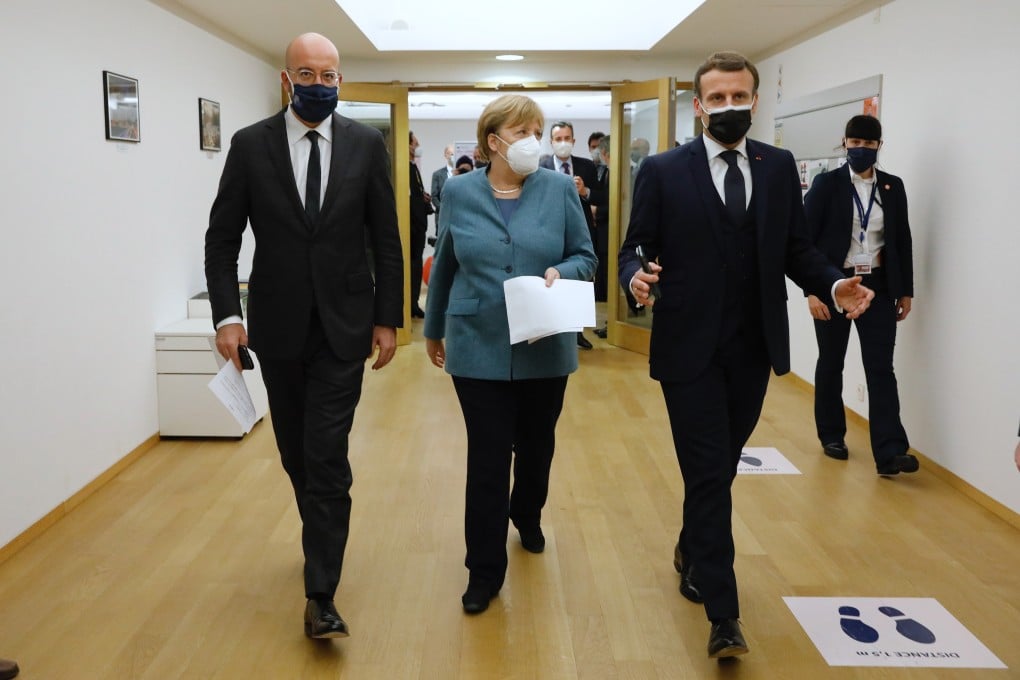Advertisement
Exclusive | EU agrees ‘in principle’ to an investment agreement with China
- German Chancellor Angela Merkel and French President Emmanuel Macron are understood to be in agreement for the deal to go ahead, says source
- The move deals a blow to Joe Biden’s hope of reviving a transatlantic partnership with Europe in a bid to take on China’s growing assertiveness
Reading Time:2 minutes
Why you can trust SCMP
99+

The European Union has agreed “in principle” to an investment agreement with China, a high-level diplomatic source in Brussels told the South China Morning Post on Thursday, in what would be a big win for Beijing in the face of tattered relations with the US.
Advertisement
The EU’s two most influential leaders, German Chancellor Angela Merkel and French President Emmanuel Macron, are understood to be in agreement for the deal to go ahead, a second source briefed on the negotiation said.
Germany, which currently holds the presidency of the EU Council, announced that the investment agreement with China would be discussed among the 27 countries’ representatives to the bloc on Friday.
The politically symbolic move between China and the EU comes just a month before Joe Biden will become the US president, dealing a blow to his hope of reviving the transatlantic partnership in a bid to take on China’s growing assertiveness.

Advertisement
The European Commission, the executive arm of the EU that is in charge of trade talks, has secured breakthroughs as China agrees to open up its market in multiple sectors for EU businesses, the sources said.
China is understood to have made concessions on sectors like financial services, manufacturing and real estate.

Advertisement